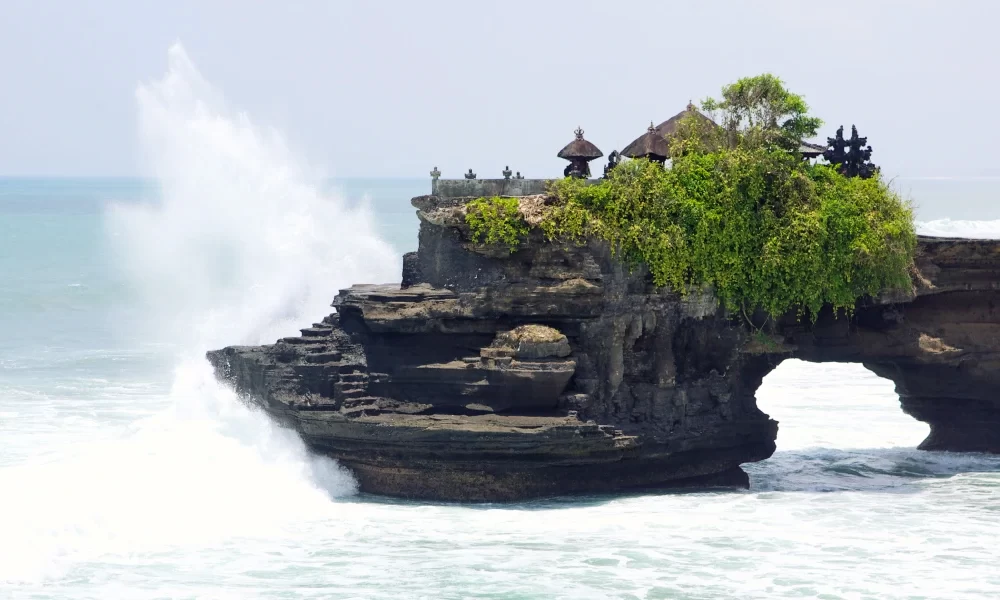Every year, all Hindu Balinese on the island of Bali in Indonesia celebrate their New Year, known as Nyepi or the “Day of Silence”. Both locals and tourists were supposed to stay inside their houses or hotels, turn off the lights, and be totally silent during this Nyepi Day.
But what exactly is Nyepi and why is it celebrated? Read this article to learn more about this sacred ceremony in Bali.
What is Nyepi?
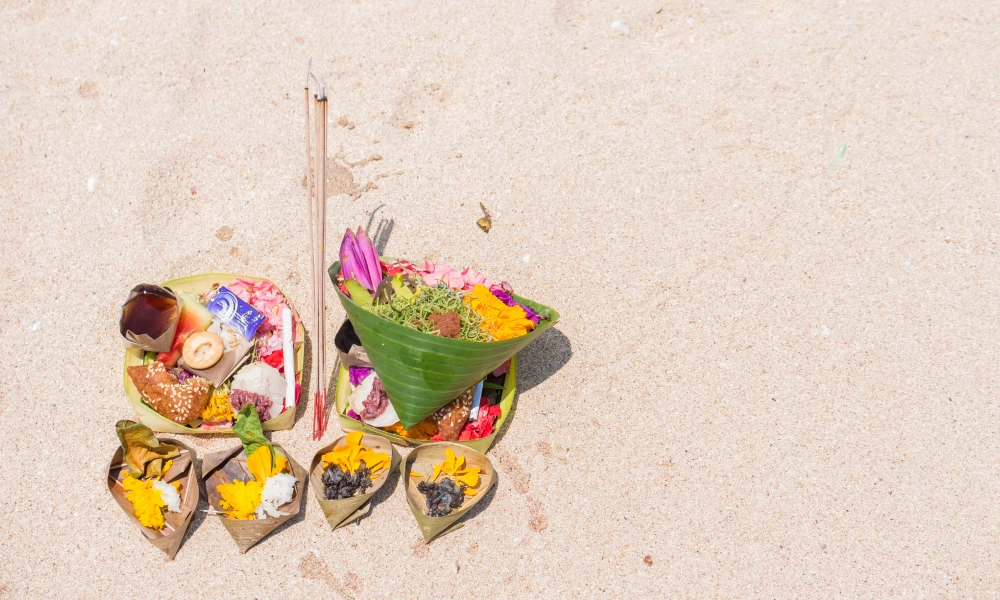
Nyepi is a general public holiday in Indonesia , and the most important and sacred Hindu holiday in Bali. It is also celebrated as a new year for the Balinese calendar. The day marks the start of the new year and is believed to bring good luck and prosperity for the upcoming year.
Nyepi, which means “to stay silent” falls on the day after the dark moon of the spring equinox, when the lengths of the night and day are roughly equal. For Balinese, Nyepi is a day of self reflection and meditation on the virtues of patience, humanity, love and kindness. The purpose of Nyepi is to purify the mind, body and soul, as well as to drive away any bad energies or influences from the previous year.
During Nyepi, the entire island observes a strict abstinence from any form of activity, including lighting fires, working, using electricity, and even talking. Business, schools, roads, harbor and the airport are all closed for 24 hours.
What You Can NOT Do During Nyepi Day
Nyepi is a day for self-reflection, and as such, anything that might interfere with that purpose is restricted. From 6 a.m. on Nyepi until 6 a.m. the next day, the Balinese follow these restrictions:
- Amati Geni: No fire, no cooking, no electricity, no entertainment, and no lights of any kind.
- Amati Karya: No business or working of any kind.
- Amati Lelungan: No traveling. The airport and harbor are closed for the day, and cars, motorbikes, and other types of transportation are not permitted on the streets. During the day of Nyepi, tourists are not permitted to leave their accommodations. The only people seen outdoors are Pecalang, traditional security personnel, who patrol the streets to ensure that the rules are being followed.
- Amati Lelanguan: No noisy festivities or self entertainment. People are asked to observe silence and refrain from talking or making noise.
What You Can Do During Nyepi Day
Although there are many restrictions during Nyepi, there are still plenty of things to do in Bali. Here are a few things you can do during Nyepi Day in Bali:
- Stay in a Villa or Hotel: Staying in a villa or hotel is the easiest way to spend Nyepi Day in Bali . You can do your usual activities, such as swimming, working out at the hotel gym, or in-house activities designed specifically for the day.
- Yoga and other forms of physical exercise: Yoga and other forms of physical exercise are encouraged as a way to purify the body and mind. The perfect way to spend Nyapi.
- Stargazing: One of the many benefits of staying in Bali during Nyepi is to experience Bali night sky. Imagine, minimal light pollution making the stars shine their brightest and the Milky Way reveals itself.
History of Nyepi
The origins of Nyepi Day are documented in Vedic scriptures, which tell the story of how, during the 1st century AD and earlier, India and its neighboring regions were plagued by persistent crises and prolonged social conflicts.
King Kaniskha I, who became the leader of the Caka tribe, successfully led them to victory after a long conflict. To commemorate this achievement, Nyepi Day was established as a tribute to King Kaniskha I’s outstanding leadership in unifying a previously divided nation with various religious beliefs.
The tradition of Nyepi was further developed and codified by the Balinese Hindu priests, or “pemangku,” who adapted it to fit the local culture and customs.
Over time, Nyepi became an important part of Balinese Hinduism and is now celebrated by the entire community, not just by the priests.
Nyepi Rituals You Can Enjoy
In Bali, preparations for Nyepi begin weeks before the actual Nyepi Day with the creation of the Ogoh-ogoh. Next, the rituals start with Melasti, Ogoh-ogoh ritual or Pengerupukan, Nyepi Day, and Ngembak Geni.
Melasti
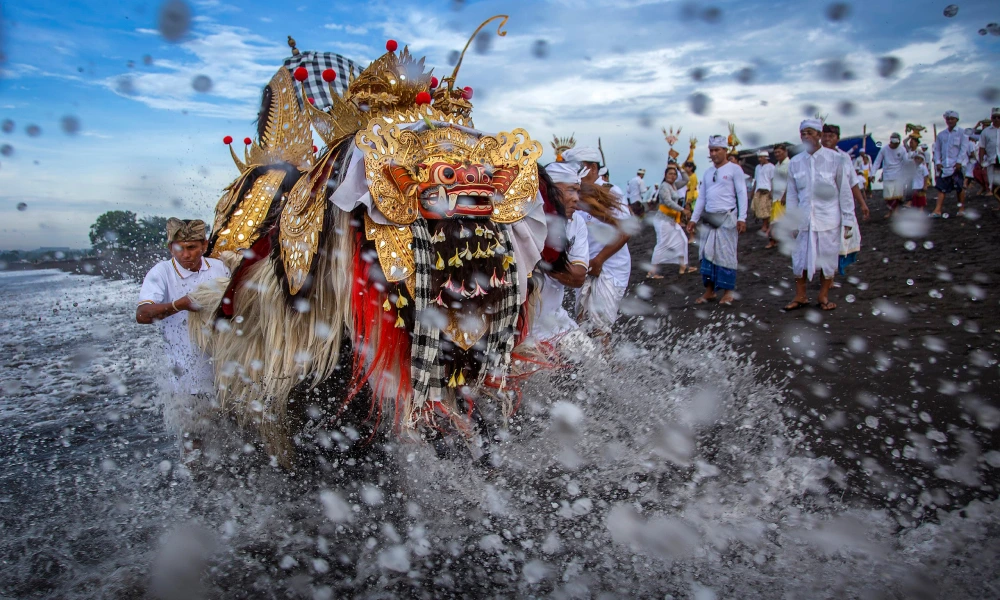
Melasti is a Hindu purification ceremony several days before the Nyepi Day.
It is believed to be a time to cleanse oneself and one’s surroundings in preparation for the new year.
The Melasti ceremony involves carrying statues of Hindu deities from the temples to the sea or other nearest water source.
After that, the statues are ceremoniously cleaned and purified. Melasti is an important ceremony that is attended by large numbers of people, and it is considered one of Bali’s most important religious events.
Pengerupukan / Ogoh-ogoh Ritual
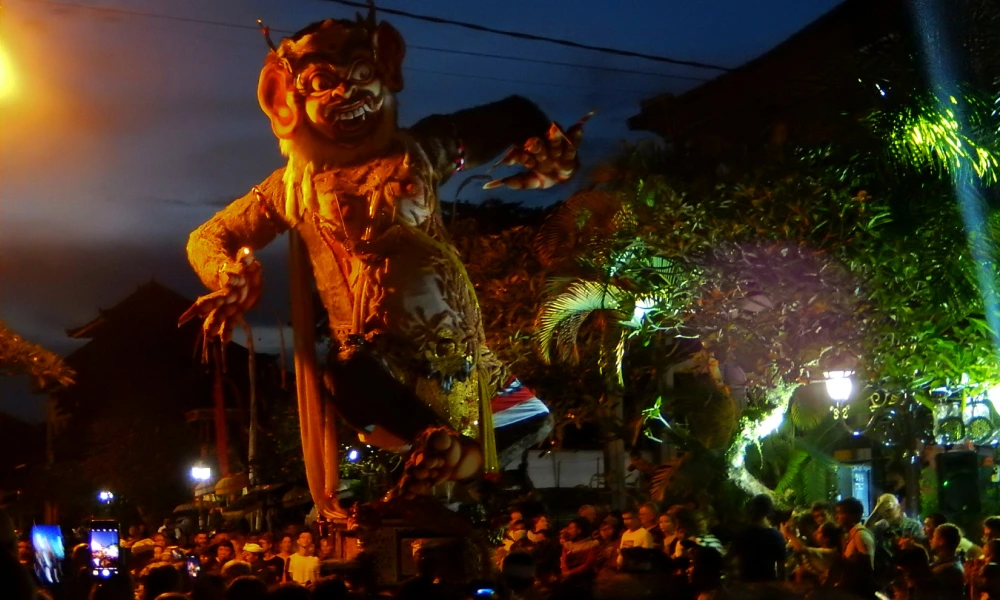
Ogoh-Ogoh is the name of the giant, terrifying demon and evil spirits inspired puppets.
They are usually made from bamboo and paper, and are decorated with intricate designs and colorful decorations.
During the ritual, Ogoh-Ogoh paraded through the streets, accompanied by traditional gamelan music and a long parade of participants.
Nyepi Day
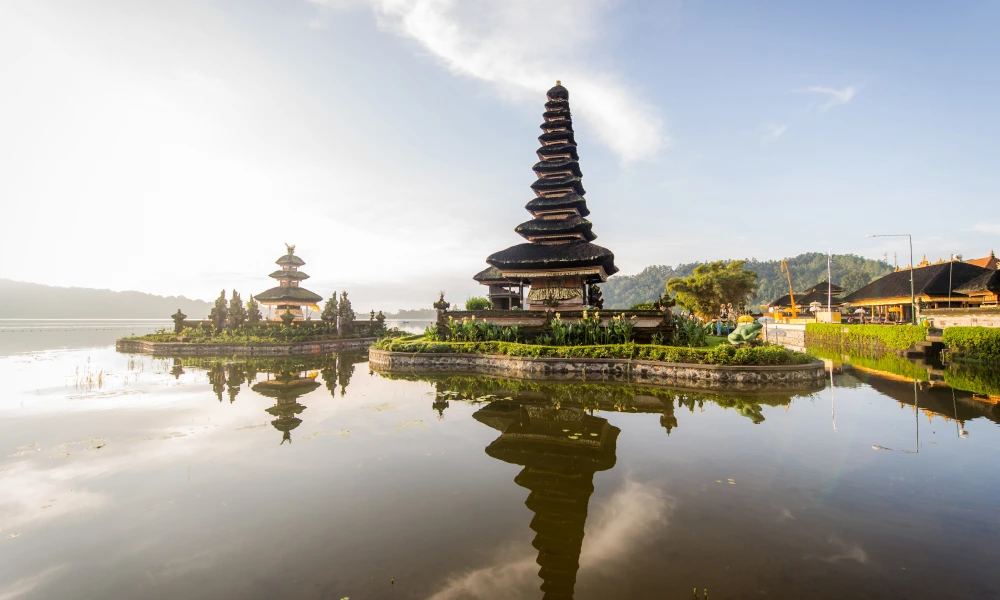
Nyepi Day starts at 6 a.m. and lasts until 6 a.m. the next day, when all of the island’s lights must be switched off, no traveling, no transportation, no work, and even no sound.
This is believed to create a peaceful and contemplative atmosphere, allowing individuals to reflect on the past year and make resolutions for the year ahead.
Ngembak Geni
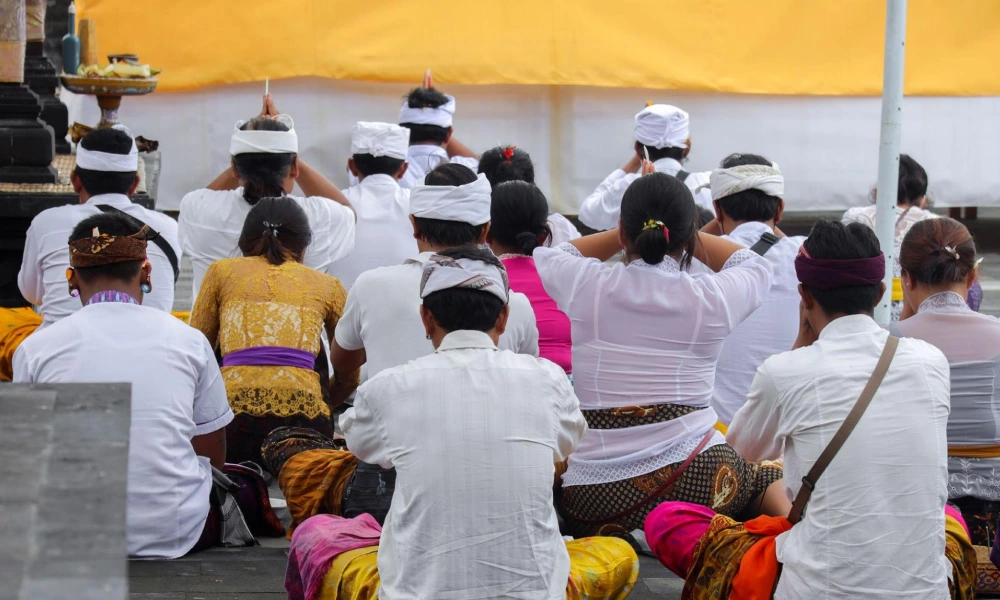
Ngembak Geni is a ritual performed the day after Nyepi. The ritual involves forgiveness, asking for forgiveness, and making amends with one another.
During the ritual, participants will come together to seek forgiveness from each other.
They will also make offerings and prayers to the gods, asking for blessings and guidance in maintaining positive relationships with one another.
It is also a time for the Balinese Hindu community to forgive themselves and find peace with the world.
